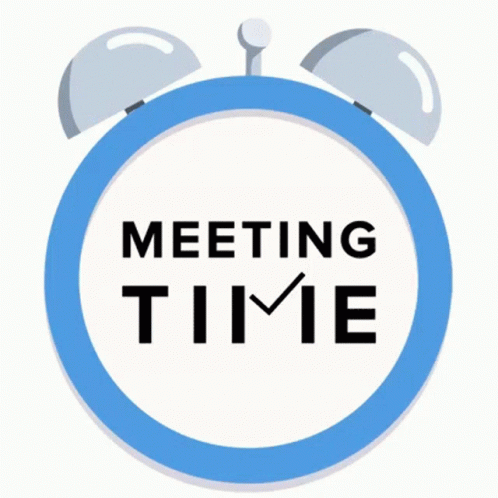Stop having meetings on Monday mornings
I bet some of you are thinking “Stop all the meetings". I'm watching you! And others are thinking “What the hell am I supposed to do if not meetings?”. I'm watching you too! And you ought to be ashamed of yourself 😅.
I stand somewhere in the middle. I think some meetings are important and have value. Others could have been an email.

Do you know 37signals? The company behind Basecamp, the book Remote, and other amazing stuff? Even they do meetings. In the tweet - is it a tweet, now? X’s? Xpression? I don’t know. Musk, please fix it! Come up with a good word, we need it! - I share below, Jason Friend, the CEO of Basecamp, shares how they use Shape Up in Basecamp.
Notice that, around minute 6 he says that many conversations happen over a call or via Zoom.
Here's a look at our Product Strategy project in Basecamp where most of the shaping/structuring happens. That said, Shape Up is a process that's embedded into everything we do, in every project. But hopefully this provides a window into something interesting for you. https://t.co/TSJNW0sh1m pic.twitter.com/ExuV5KSage
— Jason Fried (@jasonfried) June 12, 2024
He avoids calling those “calls” meetings. Meetings have a negative connotation, because… we all know that meetings suck, right?
But some meetings are important. So, before jumping to the topic of why I think we should stop having meetings on Monday mornings, let’s first discuss why meetings are important and why meetings suck.
Why meetings are important
Meetings are important for many reasons, but I’d focus on these four.
Build rapport and relationships
If you are in a position where you are managing managers, it won’t be uncommon for the team meeting to be the only opportunity for that group of people to work as a team. Your managers have their teams and this slot allows them to feel this group as a team as well.
It is also a good way to build relationships with peers, colleagues, or stakeholders. You can set regular one-on-ones with people who are key to ensuring your success. Understanding their constraints, and worries can help create a relationship that may make your job easier.
Better Communication
I have been in companies with regular all-hands or town halls and companies with few or none. In the companies with regular all hands, the flow of information was better, people felt more aligned with the company and understood better the priorities and goals. With town halls, people felt more engaged with the company. They felt their concerns were heard and handled by senior leadership.
Productivity 🚀
What? Productivity? Aren’t meetings a waste of time? Yeah, some can be a waste of time and we will talk about that later. However, they can also be a great way to boost productivity. Ensuring everyone is aligned toward the same goals can have a huge impact on a company’s productivity.
Making decisions
Meetings are usually faster when you need to make decisions but have incomplete information. I know, we could write a document explaining why the topic is important, why we need to do it, etc. And we probably should write it anyway. But a meeting is much faster to ask some questions, understand the different perspectives and, make a decision.
Why meetings sucks
Let’s be honest. Most meetings don’t add any value. It’s not only me saying it. There are tons of articles and studies saying the same. There is a non-zero probability you’re reading this article during a meeting.
Meetings are interruptions
You’re hunting that bug, debugging a complex system, or trying to understand what algorithm to use to handle hundreds of thousands of requests, and suddenly…

Especially for software engineers, meetings are a flow killer. The attendee will have a negative feeling when joining the meeting. “I was almost there” or “I have this feature to deliver, why do I have to be in this meeting?”.
A good host can mitigate this feeling and make a good transition to ensure the person is present in the meeting. Welcoming people to the meeting, thanking them for their time, and explaining why they are there and what to expect from them.
Meetings are too long
The default one-hour meeting is awful. Parkinson's Law tells us that work expands so as to fill the time available for its completion and if the meeting is scheduled for 1 hour, it will take one hour - or even more.
There’s no one-size-fits-all meeting time. People need to consider what outcome they expect from the meeting and how much time they think they need to achieve that outcome.
Meetings without agenda or poor agenda
Agenda? Ain't Nobody Got Time for That, right? 😅. Meetings without agendas are too easy to schedule. We just need to go to the calendar, allocate the time, set a title - sometimes - and that is it!
But this contributes to the negativity around meetings. Putting time aside to think about the agenda is good to understand if the meeting has any value.
Meetings without outcome
Putting time aside to create the agenda is good. But we need to understand what outcomes we expect from the meeting. One piece of advice I got and like to use when thinking about the agenda is understanding what questions need to be answered at the end of the meeting. If you can't think of one question, you probably don't need the meeting.
Priorities not aligned and discussing the same topic over and over again
A few years ago, I was starting at a new company and had a meeting to discuss a project. The project was very interesting and challenging. In my last week working for that company, I was having meetings discussing that same project.
I’m sure you can relate. This is a result of a dysfunctional organization, and I honestly don’t know what to do in these situations, other than trying to avoid going to those meetings. I consider it to relate to the second meaning of Parkinson’s Law, if you are in a bureaucratic organization, people will create work that is not a priority for the organization.
A final note in this section. If you schedule a meeting, try to include a quick survey from the people you usually meet with to understand what is going well and what can be done differently. That will help you to do better meetings.
Now, with that out of the way, why not Monday mornings
I love Friday afternoon - or Thursday, now that I’m working 4 days a week. We all do, right? But, probably for different reasons.
I have the best ideas in those last few hours of work before going to the weekend. I feel energized, my creativity is over the top and a lot of ideas to improve the organization or solve problems flow into my head. But then… we have the weekend. I try to avoid working during the weekend and reserve that time for my family or any hobby - like writing.
And along comes Monday - and it comes realllyyyyy fast 😄. During Monday morning I try to get through the ideas I had on the last day of work on the previous week. I hate it when I don’t have the time to do it. I’m usually a little grumpy on Monday morning, I need time to adjust to the work and plan my work week.
People are different, you have your own ritual to prepare for your work week but we probably have one thing in common, we need time to get back to work after the weekend.
Some managers like to schedule meetings first thing in the morning to “align priorities and what to do during the week”. At 9 AM, most people haven’t aligned themselves yet, how will they align the priorities for the week? That forces a lot of people to do this preparation on Sunday evening. If you are a manager and you are scheduling meetings first thing Monday morning, you are contributing to this behavior.
As for myself, I like to give room for people to come to work, prepare themselves, talk to their teams, understand what is going on, and have our daily check-in first thing in the afternoon. I usually like to say “Hi team” or “Happy Monday” on slack for people working remotely or say hi face to face for people at the office when I’m at the office and start my ritual Monday morning routine to prepare for the week.
It’s all about what works for you. Find that routine that can help you to be productive and motivated during the week.
Member discussion